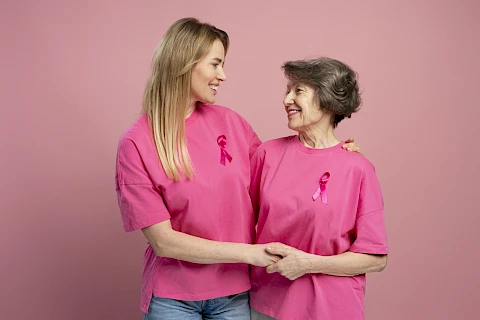
Breast cancer awareness is crucial for senior women, as age is one of the leading risk factors for developing the disease. Detecting breast cancer early can make treatment more effective and improve quality of life. Caregivers can help encourage awareness, support screenings, and encourage seniors to make informed health choices. Families can ensure their loved ones receive the attention and care they deserve by staying proactive.
What Are the Risk Factors for Breast Cancer?
Senior women face unique challenges when it comes to breast cancer. Age is one of the most significant risk factors. As women age, their risk of developing breast cancer increases. Furthermore, having a family history of breast cancer can increase risk. Caregivers should be aware if a senior's family members have had breast cancer.
Lifestyle also impacts breast cancer risk. Diet, physical activity, and alcohol consumption play a role. Seniors should aim for a balanced diet, regular exercise, and limited alcohol intake. Caregivers can help by encouraging healthier living choices.
Screening Recommendations
Ladies over 60 should follow specific screening guidelines. Regular screenings are essential for early detection. Mammograms, which are X-ray exams of the breast, are recommended for women up to the age of 75, but seniors should consult with doctors about what's best for them.
Explore different screening options. Some seniors may have health concerns that affect their ability to undergo certain types of screenings. Open conversations between caregivers, seniors, and healthcare providers are key to ensuring the best care.
Early Detection Methods
Noticing breast cancer early improves chances of successful treatment. Seniors can practice self-examination techniques. Feeling any unusual lumps or changes in the breast is vital. Encouraging seniors to perform regular self-exams can help familiarize them with their bodies and notice any changes promptly.
Recognize early signs, such as swelling, dimpling, or nipple discharge. Caregivers can encourage open communication with healthcare professionals. Seniors should feel comfortable discussing any changes or concerns with their doctors.
Supporting Seniors Affected by Breast Cancer
Emotional support is just as important as physical care for seniors diagnosed with breast cancer. Caregivers can encourage and help manage stress. Being there to listen and offer comfort can make a big difference.
Navigating treatment options also requires support. Understand available healthcare services. Caregivers can research treatments and accompany seniors to appointments.
Community and family support are also necessary. Seniors should feel connected and supported by those around them. Encouraging family involvement and seeking local support groups can create a strong network for seniors.
Need More Support for a Senior?
Awareness and early detection can make a meaningful difference for senior women facing breast cancer. Encouraging healthy habits, promoting screenings, and fostering open communication with healthcare providers all contribute to better outcomes. If you are caring for a loved one in Alderwood, Applewood, Cooksville, Dixie, Eringate-Centennial-West Deane, or nearby communities, contact us at Senior Helpers Etobicoke & Mississauga East. Our team provides guidance, care, and support for seniors and their families.